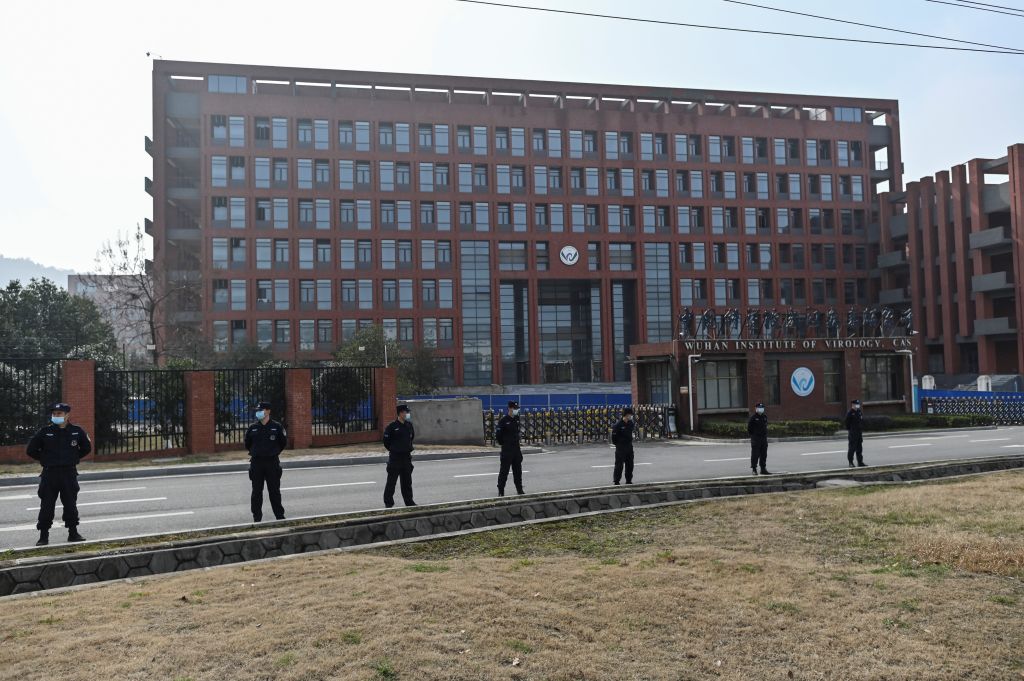Why a COVID-19 origin task force is disbanding


A free daily email with the biggest news stories of the day – and the best features from TheWeek.com
You are now subscribed
Your newsletter sign-up was successful
Dr. Jeffrey Sachs, a Columbia University professor who has chaired a COVID-19 commission affiliated with The Lancet scientific journals, told The Wall Street Journal that he's disbanding a task force of scientists probing the coronavirus' origins. He reached the decision because the group was linked too closely with the New York-based non-profit EcoHealth Alliance, which has been scrutinized by scientists and lawmakers due to its use of U.S. funds to study bat coronaviruses with the Wuhan Institute of Virology.
EcoHealth alliance's president Peter Daszak, who has been a vocal opponent of the theory that the virus escaped from a lab, led the task force until he recused himself in June. But Sachs thought it was better to end the whole thing since other members had also collaborated with Daszak on other projects, although one member told the Journal there was no conflict of interest. Going forward, Sachs' commission will continue to study the origins of the virus, and the goal is to publish a report on the findings by mid-2022, but there will be a shift in the focus of the research. Now, the Journal reports, it will look at the broader issue of "biosafety concerns including government oversight and transparency regarding risky laboratory research." Sachs clarified that he doesn't favor any particular COVID-19 origin theory.
It's been a busy week for the debate lab leak-natural spillover debate. First, The Intercept shedding light on a leaked 2018 grant proposal from EcoHealth Alliance, which detailed what some scientists consider high-risk coronavirus research. Meanwhile, a preprint of a study revealed that scientists found three viruses in Laos that are more similar to the COVID-19 coronavirus than any other known pathogen, which some scientists argue boosts the natural origin theory. Read more at The Wall Street Journal.
The Week
Escape your echo chamber. Get the facts behind the news, plus analysis from multiple perspectives.

Sign up for The Week's Free Newsletters
From our morning news briefing to a weekly Good News Newsletter, get the best of The Week delivered directly to your inbox.
From our morning news briefing to a weekly Good News Newsletter, get the best of The Week delivered directly to your inbox.
A free daily email with the biggest news stories of the day – and the best features from TheWeek.com
Tim is a staff writer at The Week and has contributed to Bedford and Bowery and The New York Transatlantic. He is a graduate of Occidental College and NYU's journalism school. Tim enjoys writing about baseball, Europe, and extinct megafauna. He lives in New York City.
-
 Political cartoons for February 19
Political cartoons for February 19Cartoons Thursday’s political cartoons include a suspicious package, a piece of the cake, and more
-
 The Gallivant: style and charm steps from Camber Sands
The Gallivant: style and charm steps from Camber SandsThe Week Recommends Nestled behind the dunes, this luxury hotel is a great place to hunker down and get cosy
-
 The President’s Cake: ‘sweet tragedy’ about a little girl on a baking mission in Iraq
The President’s Cake: ‘sweet tragedy’ about a little girl on a baking mission in IraqThe Week Recommends Charming debut from Hasan Hadi is filled with ‘vivid characters’
-
 Blue Origin launches Mars probes in NASA debut
Blue Origin launches Mars probes in NASA debutSpeed Read The New Glenn rocket is carrying small twin spacecraft toward Mars as part of NASA’s Escapade mission
-
 Dinosaurs were thriving before asteroid, study finds
Dinosaurs were thriving before asteroid, study findsSpeed Read The dinosaurs would not have gone extinct if not for the asteroid
-
 SpaceX breaks Starship losing streak in 10th test
SpaceX breaks Starship losing streak in 10th testspeed read The Starship rocket's test flight was largely successful, deploying eight dummy satellites during its hour in space
-
 Rabbits with 'horns' sighted across Colorado
Rabbits with 'horns' sighted across Coloradospeed read These creatures are infected with the 'mostly harmless' Shope papilloma virus
-
 Lithium shows promise in Alzheimer's study
Lithium shows promise in Alzheimer's studySpeed Read Potential new treatments could use small amounts of the common metal
-
 Scientists discover cause of massive sea star die-off
Scientists discover cause of massive sea star die-offSpeed Read A bacteria related to cholera has been found responsible for the deaths of more than 5 billion sea stars
-
 'Thriving' ecosystem found 30,000 feet undersea
'Thriving' ecosystem found 30,000 feet underseaSpeed Read Researchers discovered communities of creatures living in frigid, pitch-black waters under high pressure
-
 New York plans first nuclear plant in 36 years
New York plans first nuclear plant in 36 yearsSpeed Read The plant, to be constructed somewhere in upstate New York, will produce enough energy to power a million homes
